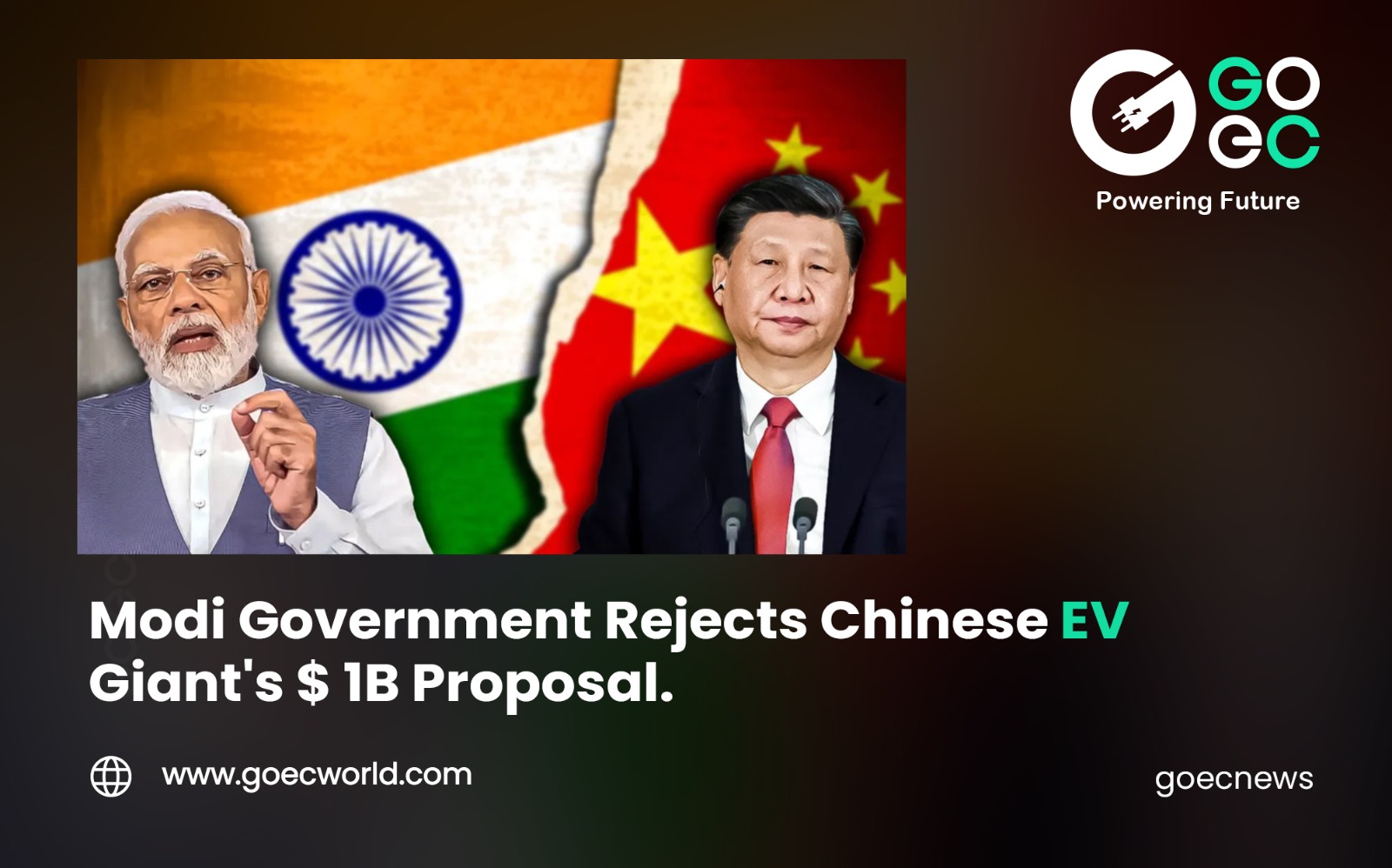In a significant development for the Indian electric vehicle (EV) industry, the Modi government has rejected the proposal by Chinese EV manufacturer BYD to set up a $1 billion manufacturing plant in the country. The decision comes amid growing concerns over national security and economic interests.
The rejection of BYD’s proposal was officially announced by government authorities, citing reasons related to India’s strategic concerns and the ongoing border tensions with China. The move reflects the government’s commitment to safeguarding the country’s domestic industries and ensuring data security.
BYD, a prominent player in the global electric vehicle market, had expressed its interest in establishing a major manufacturing facility in India to capitalise on the country’s burgeoning EV market. The proposed investment aimed to accelerate the adoption of electric mobility, create job opportunities, and boost the country’s EV ecosystem.
However, the prevailing geopolitical situation and apprehensions about China’s influence in key sectors have prompted the Indian government to take a cautious approach towards Chinese investments. Several sectors, including technology and infrastructure, have been closely monitored, and proposals from Chinese firms have been subject to rigorous scrutiny.
The decision to reject BYD’s proposal sends a strong message about India’s intention to safeguard its national interests and promote indigenous manufacturing in the EV sector. The government has been actively encouraging domestic and foreign companies to invest in India and participate in its ambitious EV policies and initiatives, such as the Faster Adoption and Manufacturing of Hybrid and Electric Vehicles (FAME) program.
While the rejection may be viewed as a setback for BYD’s plans in India, it also presents an opportunity for other global and domestic EV manufacturers to explore investment prospects in the country. India’s rapidly growing middle class and increasing environmental awareness have made it an attractive market for electric mobility solutions.
The Modi government’s decision highlights the importance of a well-balanced and prudent approach towards foreign investments, especially in sectors that have strategic significance for the nation. It also underscores the need for collaboration between the government and industry stakeholders to drive sustainable and inclusive growth in India’s EV landscape.
As the EV sector continues to witness rapid developments and technological advancements, the Indian government remains committed to nurturing the growth of the domestic EV ecosystem, promoting innovation, and positioning India as a global leader in the electric mobility revolution.
